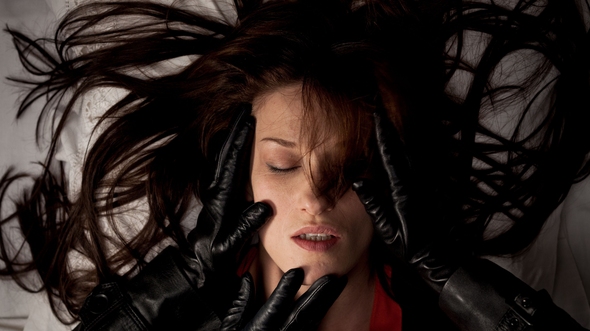In May this year, Baxter Dury will play at the Casino de Paris, an iconic venue with a capacity of 2000, and venue for an iconic live album by Serge Gainsbourg; Stereo in Glasgow is among the best venues in Scotland, but it’s just a smidge smaller (capacity: 300) - the audience tonight may not know, in a way, just how privileged it is.
Parisians Halo Maud open, perhaps a little bit bashful at first if très charmants, their sound is certainly aligned with what one tends to think of in terms of contemporary French pop music (or at least that which we are exposed to in the UK): somewhat ethereal vocals, minimalist guitar, slightly proggy keyboard washes, melodic and propulsive bass, driving (but never heavy) drums. There’s a lightly psychedelic touch to them, little hints of Broadcast, Melody’s Echo Chamber, Aquaserge – at one point, vocalist and guitarist Maud Nadal (also of Moodoïd) even sings a searching melody that brings Björk to mind. Rightly well-received, their set is dynamic and memorable.
Baxter Dury’s onstage persona is certainly geezerish but with a knowing glint in the eye present at all times. It’s wholly appropriate for the music, especially numbers from his superlative 2017 album Prince of Tears, a catalogue of sad characters victimised by their own masculinity, too in love their own bravado and braggadocio to notice they’re pathetic, broken.
Across a set composed primarily (but not solely) of songs from his last three albums, Dury is a charismatic stage presence and the music shines. Played live, these songs take on an extra vivacity, muscularity – the band has a great time, and so do the audience. It’s pretty rare for a 16-song set (including encore) to be anything other than irritating/waring/boring by the time of its conclusion, but not tonight. It’s pretty much perfect - sometimes cheeky, sometimes downtrodden, always captivating. Dury should be a household name in the UK but as it stands he’s just another example in a long list of ways our Continental brethren can show us the way. Bof.
Photos: Erika Sella. Words: Andrew R. Hill

































